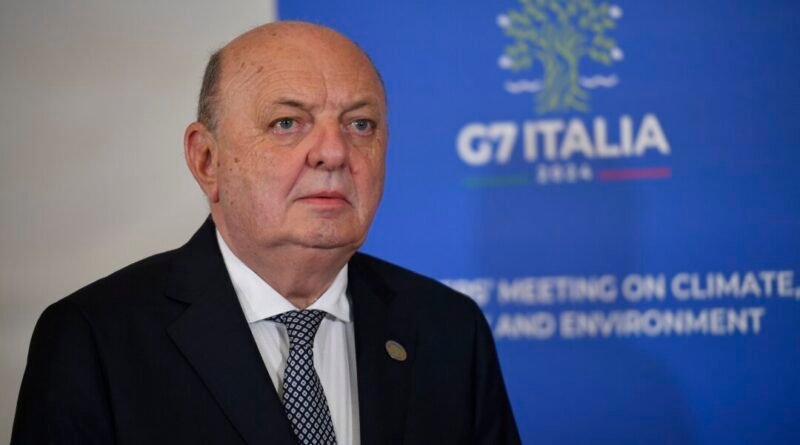Italy is set to bring back nuclear power after closing its last atomic plant 35 years ago.
Nuclear energy is a controversial issue in Italy, which shut down its last atomic plant 35 years ago and where Italians voted in a 2011 referendum against reviving a national nuclear program after Japan’s Fukushima disaster.
In his July 14 interview with The Financial Times, the energy minister further disclosed that, as part of the nuclear revival plan, the country’s lawmakers intend to introduce legislation that will enable investments in small modular nuclear reactors that could be brought online within a decade.
Further, he told the outlet that nuclear power should account for at least 11 percent of Italy’s total electricity consumption by 2050, adding that renewables like wind and solar “cannot provide the security that we need.”
In his interview with The Financial Times, Mr. Fratin also warned about overreliance on solar panels, the bulk of which are made in China.
“It is clear that the development of solar is strongly linked to imports from China… a country that has a very government-controlled enterprise system, which can be a political, as well as commercial tool,” he said.
The manifesto urges the European Commission to establish a level playing field for all net-zero technologies, rather than giving preferential treatment to some—like wind and solar—while discriminating against others through, for instance, taxation policies.
It calls on EU leaders to implement consistent and coherent policies that facilitate the deployment of nuclear power, including allowing nuclear to access EU funds and finance.
The manifesto also urges the EU to provide greater support for nuclear research and to boost innovative nuclear technologies.
Nucleareurope, the Brussels-based trade association for the nuclear industry in Europe that came up with the manifesto, is also hoping to persuade the European Commission that nuclear power is a solution to many of the challenges facing the EU, including climate change, access to affordable energy, and security of energy supply.
“Nuclear is a clean and sustainable technology, which is why it essential the next Commission treat nuclear on an equal footing with other fossil-free technologies,” nucleareurope Director General Yves Desbazeille, said in a statement. “Our expectation is that future policy proposals will focus on goals–decarbonisation, competitiveness, energy sovereignty–rather than on specific technologies.”
Nuclear accounts for nearly 26 percent of the electricity produced in the EU, with France far and away the top nuclear power producer in the block, with 56 nuclear power reactors that account for a whopping 64.8 percent share of global nuclear energy generation.
Italy built four nuclear power plants in the 1960s and 1970s and had plans to construct more. However, in response to anti-nuclear sentiment following the 1986 Chernobyl disaster, Italians voted in a referendum to halt support for nuclear plans and later shut them all down.
Several decades later, former Prime Minister Silvio Berlusconi tried to revive Italy’s nuclear program, but the 2011 referendum put a halt to those plans.






